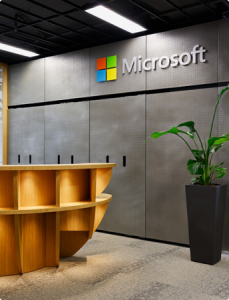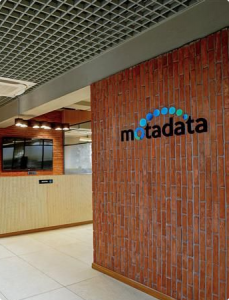Blockchain in 2023. How Can It Transform Your Business?
The transformation of Blockchain in 2023
Blockchain technology was introduced during the nascent stages of Bitcoin, the decentralized cryptocurrency which was launched in 2009, being the first digital currency in the world.
However, blockchain is more than just digital finance.
Blockchain is a shared, unchangeable and stable ledger technology that transforms today’s business by fostering and easing the procedure of recording transactions.
It also helps to track assets in a business network.
An asset may imply both tangible forms like house, car, land and cash or intangible forms like branding, copyrights, patents and intellectual property.
Although it’s tough to bring about the alteration of some processes for core business operations, for instance, the introduction of new services etc. multiple market and economic influences steer organizations in the direction of digital transformation in different sectors.
The technology is especially attractive for small companies.
The transformation actually facilitates them with an economical and effective way to access savings or investment items, receive or make payments and develop a credit history.
Small and medium-sized enterprises (SME) stand to gain much from blockchain, which ensures financial growth as well as job creation.
Blockchain expects to see a humongous growth in the coming years and touch $39 billion by the year 2025.
Benefits
1. Smart contracts
This is the most common use. It’s a self-executing contract where the terms and conditions of both the participants or groups are written in codes which are stored unalterably and rigidly in the blockchain network.
2. Supply chain
When blockchain is deployed in supply chain management, it permits all parties within a specific supply chain to get hold of the same information, consequently minimizing the chances of information sharing or data transfer flaws.
The SMEs can track their merchandise and services from source to transportation to final delivery. It’s a secure process where organizations can combat falsification and forgery while preventing shipment delays.
3. Payment convenience
There is an alliance between blockchain and digital payments which eventually brings about swift, secure and affordable payment processing services.
The technology gets rid of the participation of third parties, unnecessary documentations and money transfer waiting periods. Cross-border payments are also facilitated.
4. Security
Blockchain provides a robust security. It produces a structure of data with intrinsic security features.
It’s centred around the concepts of cryptography, decentralization and consensus, that assure trust in commercial deals and trades.
The risk of cyber attacks is reduced while the distributed character of the chain blocks tampering and forgery since each activity on the network is completely transparent.
5. Advertising and marketing
Blockchain is very supportive and beneficial with regard to advertising and marketing.
On the commercial front, marketers can get live tracking of client information and behaviour which helps in creating effective and result-oriented campaigns, bringing about a higher return on investment.
The decentralized ledger technology, while shutting out middlemen, can continuously identify whoever clicks and interacts with an advertisement and battles deception and swindling as well.
6. Hiring
The technology is aiding the process of manpower hiring also. It’s actually revolutionizing the means by which recruiting agencies and employers identify, cherry pick and scrutinize potential employees.
Blockchain is highly reliable as far as maintenance of the integrity of data, like a candidate’s background and academic credentials, are concerned.
Influence on industries
a. Blockchain can be utilized for secure sharing of medical data since medical records are easy target of hacking. It makes retrieval of data possible only by authorized persons.
b. Some organizations are resorting to Blockchain for managing Internet of Things ( IoT) data produced by wearable fitness trackers and self-driving cars.
c. Blockchain can offer the music industry the service of the distributed ledger so that each song sold, streamed or transferred is registered. This will help artists to track royalties owed to them by the distributors.
d. The technology can offer the banking and the financial services sector opportunities for blockchain-centred businesses, which will provide them with digital, safe, unchangeable and stable ledgers. Blockchain development services can also facilitate very secure cloud computing, cost-effective and efficient methods for borrowing and lending.
Wrapping Up
All these prove beyond doubt that there are numerous ways in which the applications of blockchain in 2023 can productively and lucratively transform the various business sectors.










